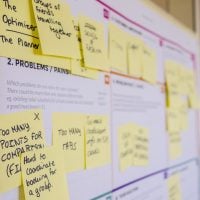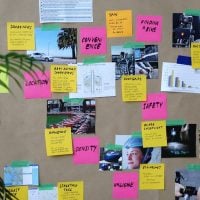In the ever-evolving world of non-profit organizations, understanding the research landscape is crucial for driving impactful initiatives. Research serves as the backbone of evidence-based practices, allowing NGOs to substantiate their programs and advocate for change effectively. To navigate this landscape, professionals must familiarize themselves with current trends, methodologies, and the types of research that resonate with their mission.
This involves not only keeping abreast of academic literature but also understanding the practical implications of research findings in real-world settings. Engaging with existing studies can provide insights into what has been tried, what has succeeded, and where gaps in knowledge still exist. Moreover, recognizing the importance of interdisciplinary research can open new avenues for collaboration.
Many pressing social issues, such as poverty alleviation, education reform, and public health crises, require a multifaceted approach that draws on various fields of study. By understanding how different disciplines intersect, NGO professionals can better position their organizations to engage with academic institutions that have complementary expertise. This holistic view of the research landscape not only enhances the credibility of an NGO’s initiatives but also fosters innovative solutions that can lead to sustainable change.
Identifying Potential University Partners
Once a solid understanding of the research landscape is established, the next step is identifying potential university partners. This process begins with mapping out universities that align with the NGO’s mission and objectives. Factors to consider include the university’s areas of expertise, ongoing research projects, and faculty interests.
For instance, if an NGO focuses on environmental conservation, partnering with universities that have strong environmental science or policy programs can yield fruitful collaborations. Additionally, it is beneficial to look for universities that have a history of community engagement or partnerships with non-profits. These institutions are often more receptive to collaboration and may have established frameworks for working with external organizations.
Attending academic conferences, workshops, or community events can also provide opportunities to meet faculty members and learn about their research interests firsthand. By actively seeking out these connections, NGO professionals can build a network of potential partners who share a commitment to addressing social issues.
Building Relationships with University Faculty and Administrators
Building relationships with university faculty and administrators is a critical step in fostering successful partnerships. This process requires a strategic approach that emphasizes mutual respect and shared goals. Initiating contact through informal channels, such as attending lectures or networking events, can help establish rapport before formal discussions begin.
When reaching out, it is essential to articulate the NGO’s mission clearly and express genuine interest in the faculty’s work. This not only demonstrates respect for their expertise but also lays the groundwork for collaborative discussions. Once initial connections are made, maintaining ongoing communication is vital.
Regular check-ins, updates on the NGO’s activities, and invitations to university events can help keep the relationship alive. Additionally, offering opportunities for faculty to engage with the NGO—such as guest speaking at events or participating in community projects—can further strengthen ties. By fostering a culture of collaboration and open dialogue, NGOs can create a supportive environment where both parties feel valued and invested in the partnership.
Developing a Collaborative Research Proposal
The development of a collaborative research proposal is a pivotal moment in any partnership between NGOs and universities. A well-crafted proposal not only outlines the research objectives but also highlights the unique contributions each partner brings to the table. To create a compelling proposal, it is essential to start with a clear problem statement that reflects both the NGO’s mission and the academic interests of the faculty involved.
This alignment ensures that the research is relevant and impactful. In addition to defining the research question, it is crucial to outline a detailed methodology that incorporates both qualitative and quantitative approaches. Engaging university faculty in this process can enhance the proposal’s rigor and credibility.
Furthermore, including a timeline and budget that reflects realistic expectations will demonstrate professionalism and preparedness. By collaboratively developing a proposal that showcases shared goals and expertise, NGOs can significantly increase their chances of securing funding and achieving meaningful outcomes.
Leveraging University Resources and Expertise
One of the most significant advantages of partnering with universities is access to their vast resources and expertise. Universities often have specialized facilities, databases, and technology that NGOs may not possess. For instance, if an NGO is conducting health-related research, collaborating with a university could provide access to medical labs or statistical software that enhances data analysis capabilities.
Understanding how to leverage these resources effectively can amplify the impact of an NGO’s initiatives. Moreover, university faculty members bring a wealth of knowledge and experience that can enrich an NGO’s programs. Their expertise in research design, data collection, and analysis can lead to more robust findings and actionable insights.
NGOs should actively seek opportunities for faculty involvement throughout the research process—from designing surveys to interpreting results—to ensure that they are maximizing the benefits of their partnership. By tapping into these resources and expertise, NGOs can elevate their work and contribute to evidence-based practices in their field.
Navigating the Grant Application Process
Navigating the grant application process can be daunting for many NGOs, but having university partners can significantly ease this burden. Universities often have dedicated grant writing teams or offices that specialize in securing funding for research projects. Collaborating with these teams can provide NGOs with valuable insights into grant requirements, deadlines, and best practices for proposal writing.
Additionally, university faculty members may have experience with specific funding agencies or programs, which can inform strategic decisions about where to apply. When preparing grant applications, it is essential to clearly articulate the roles and contributions of each partner involved in the project. Funders are often interested in understanding how collaboration enhances project outcomes and impacts communities.
Including letters of support from university administrators or faculty can also strengthen an application by demonstrating institutional commitment to the project. By leveraging university resources during the grant application process, NGOs can improve their chances of securing funding while building a foundation for future collaborative efforts.
Establishing Clear Communication and Expectations
Establishing clear communication and expectations from the outset is vital for successful partnerships between NGOs and universities. This involves setting up regular meetings to discuss project progress, challenges, and any necessary adjustments to timelines or objectives. Open lines of communication foster transparency and trust among partners, which are essential for navigating any complexities that may arise during collaboration.
Additionally, defining roles and responsibilities early on helps prevent misunderstandings later in the project. Each partner should have a clear understanding of their contributions and how they align with overall project goals. Creating a memorandum of understanding (MOU) can formalize these agreements and serve as a reference point throughout the partnership.
By prioritizing clear communication and well-defined expectations, NGOs can cultivate strong relationships with university partners that are built on mutual respect and shared objectives.
Sustaining and Nurturing the Partnership for Future Opportunities
Sustaining and nurturing partnerships with universities is essential for long-term success and future opportunities. After completing a collaborative project, it is important to reflect on what worked well and what could be improved for future endeavors. Conducting debriefing sessions with university partners allows both parties to share feedback and insights that can inform subsequent collaborations.
Moreover, maintaining ongoing engagement beyond individual projects can lead to new opportunities for joint initiatives or funding applications. Regularly sharing updates about the NGO’s work or inviting university partners to participate in community events helps keep the relationship vibrant. Additionally, recognizing and celebrating successes together—whether through joint publications or presentations—can strengthen bonds between partners.
In conclusion, building effective partnerships between NGOs and universities requires a strategic approach that encompasses understanding the research landscape, identifying potential partners, fostering relationships, developing collaborative proposals, leveraging resources, navigating grant processes, establishing clear communication, and nurturing long-term connections. By following these actionable steps, NGO professionals can create impactful collaborations that drive meaningful change in their communities while advancing academic research agendas.









































